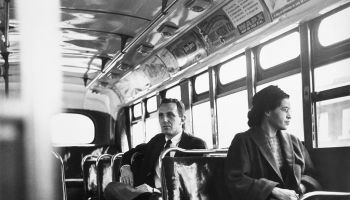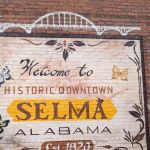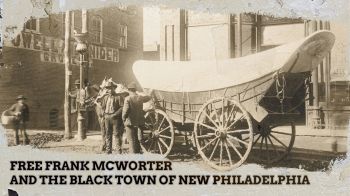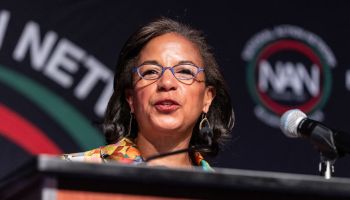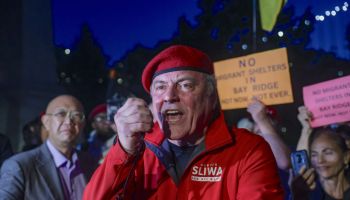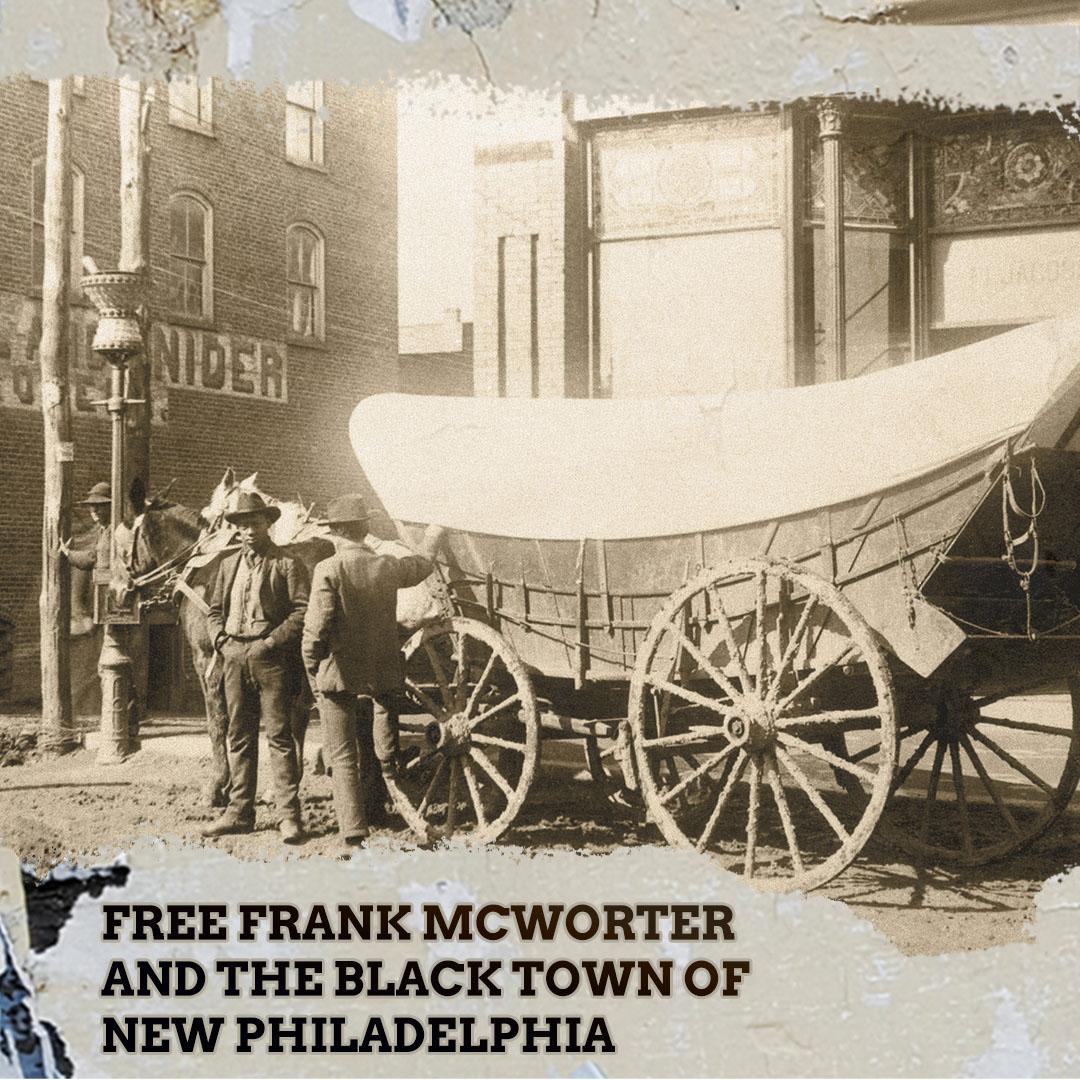
Source: creative services / iOne Digital
If I asked you what a Black hero looked like, what would you tell me?
Would you describe a Wakandan-figured warrior with super-human strength?
Or maybe when you think of a Black hero you see a well-spoken pastor whose voice captivates the world?
Our Black heroes are not a monolith and they all deserve our praise and recognition for the uniqueness they bring to inspiring our lives.
Their stories give us hope, they show us that our fates can truly be in our hands if we know our worth. But many of these stories never reach the level of consciousness like the well-known tales of Martin Luther King, or Malcolm X.
Hidden within American history are some extraordinary Black people who were capable of doing extraordinary things despite, slavery, racism, and hatred being an everyday struggle.
In 1819, just 43 years after this country was founded, a Black man purchased his freedom from his slave owner. His journey afterward would be one of the greatest American tales in over 200 years–a history lesson Black Folklore just couldn’t pass up.
This is the Black Folklore story of ‘Free’ Frank McWorter and his Black Illinois town he built just 20 miles from a slave market.
‘Free’ Frank was an entrepreneur, a visionary, a family man, and one of the most interesting Black men in American history. But ‘Free’ Frank wasn’t always free.
In 1777, Frank was born a slave in South Carolina’s Blue Ridge Mountains. His mother Juda was a slave to George McWhorter, a Scotch-Irish man whom historians believe was likely Frank’s father.
Master-slave sexual intercourse was frequent in the Antebellum South. Women were forced and manipulated into consensual sexual relations with their owners. The children were then turned into slaves.
In 1795 George McWhorter and his slaves left South Carolina for Kentucky’s Pennyroyal Frontier.
Life in Kentucky was a lot different than in South Carolina. The land was less forgiving and many land owners focused on survival.
A shortage of jobs coupled with slavers’ greed created an interesting opportunity for Frank. Because there were not enough people to handle many of the jobs on the Frontier, slaves could hire out their extra time to other settlers. Settlers would pay slaves for their work, then slave owners would take a cut of the profits.
But Frank had a plan to get himself and his family out of bondage. He worked non-stop day and night until he was able to save up enough money to leave bondage in the past. In 1817 Frank purchased his wife’s freedom from George McWhorter. Once his wife was free he got back on the grind and worked and worked until by 1819 he had saved up enough to purchase his freedom from his father. The slave known as Frank formally changed his name to ‘Free’ Frank and his legend began to grow. But even though he and his wife were free, his children were still in bondage.
Now that ‘Free’ Frank wasn’t a slave any longer, he was able to legally purchase land. Property ownership meant better opportunities for Blacks in America. ‘Free’ Frank purchased his first lot of land in Kentucky, but he didn’t have plans to stay there very long.
Kentucky was still entrenched in the economics of slavery. If he was going to get his children back, he needed to create a life in a place that prohibited slavery.
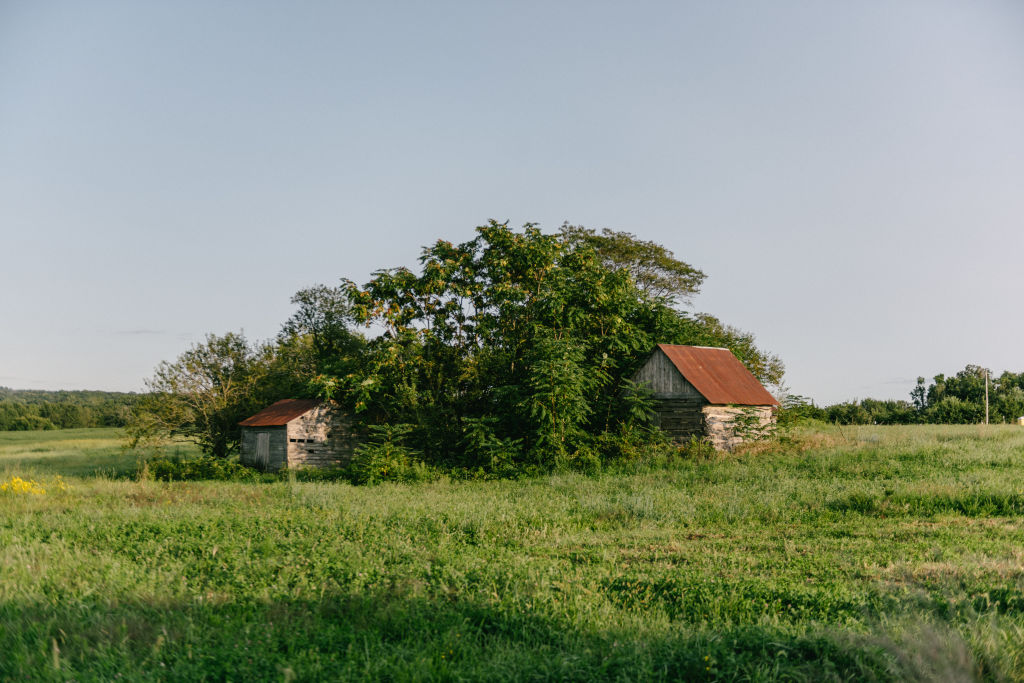
Source: The Washington Post / Getty
‘Free’ Frank set his sights on the state of Illinois, which was admitted into the Union in 1818 as a free state that prohibited slavery. But the state had clear laws which were intended to hold Black folks back from finding success in America.
Illinois required that formerly enslaved individuals pay a $1,000 bond when they moved into the state. But ‘Free’ Frank was already a landowner in Kentucky, which meant he was exempt from paying the bond.
In 1829, local physician Dr. Galen Elliott sold ‘Free’ Frank a piece of land on the Military Tract in Illinois. This was land the federal government put aside to reward veterans for their military service.
‘Free’ Frank, his wife, his son Frank and his three free-born children Squire, Commodore, and Lucy Ann moved from Kentucky to Illinois in 1831. They built their farmstead about 20 miles from the Mississippi River and began planting and harvesting crops. They also became active members of the local baptist church. By 1832 ‘Free’ Frank and his wife had farmed nearly 80 acres of their land and made quite a bit of money.
Now that his family had the means, ‘Free’ Frank was determined to free the rest of his enslaved children and grandchildren. In 1835 Frank headed back to Kentucky to rescue his son Solomon out of slavery. Returning to a slave state as a freed Black man was a serious no-no. Slave hunters roamed the state looking to round up Black people enslaved and free alike. Slave hunters regularly destroyed freedom papers of Black men, which meant at anytime ‘Free’ Frank could have been captured and sold back into slavery. But Frank was determined to free his children and would take the trip back to Kentucky serval times risking his life for his family.
A year later ‘Free’ Frank and his family bought even more land, purchasing a neighboring 80-acre tract of Military Land from the United States Government. He planned to create an abolitionist town for families looking to escape the perils of slavery, racism, and bigotry.
By 1837 ‘Free’ Frank was wealthy enough to make some major moves for any American, let alone a former slave.
He set up 144 lots, each measuring 60 feet by 120 feet. He named his new town New Philadelphia because of the Philadelphia Quakers and their movement to free slaves in the state of Pennsylvania. Frank sold plots of land to Black and white settlers alike and used his farm to serve the town’s residents. Although many Blacks couldn’t afford to pay Illinois’ settlement bond laws for formerly enslaved individuals, Blacks still persevered. There were still more Black folks living in New Philadelphia than in the entire state of Illinois. At its peak in 1865, New Philadelphia had more than 160 residents. The town had a post office, a blacksmith’s shop, a church that doubled as a school, a hotel, and two shoemakers.
Frank would later petition the Illinois General Assembly to take the legal last name of his father and slave owner. Having the last name protected his real estate holdings and made sure his family could continue in his legacy. Frank was now officially ‘Free’ Frank McWhorter.
But that was only a part of his legacy. ‘Free’ Frank still needed to get the rest of his family out of bondage. He returned to Kentucky multiple times, risking his life to find freedom for his family.
By the time he died in 1854, Frank McWorter had purchased freedom for four of his seven children born into slavery, his daughter-in-law Louisa, two enslaved grandchildren, himself, and his wife Lucy. Before his death, he also directed his descendants to purchase the freedom of his remaining enslaved grandchildren and great-grandchildren. From 1830 to 1854 Frank spent more than $14,000 freeing 16 family members from bondage. $14,000 in 1850 is worth $531,777.44 today.
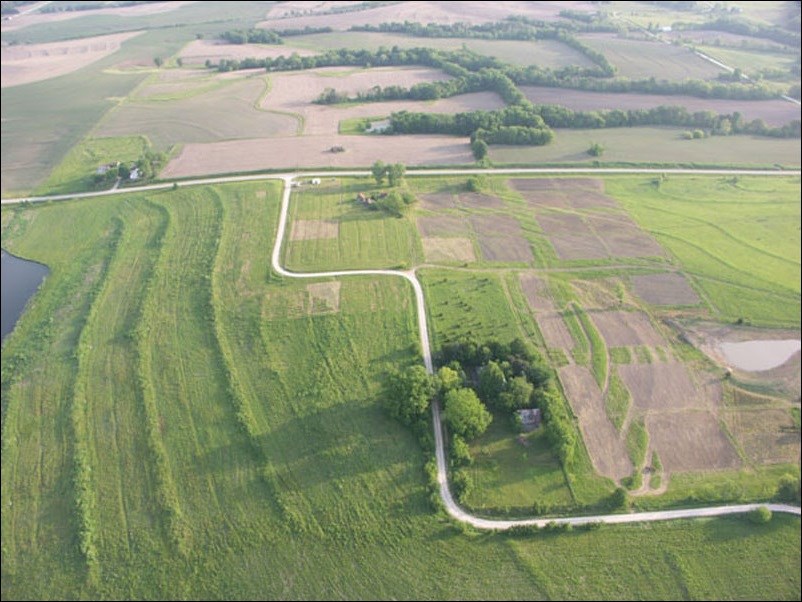
Source: National Park Service / NPS
By 1853, the railroad become the most popular means of transportation replacing the stagecoaches and steamboats, which were crucial in the survival of small towns not located directly next to a rail line. Eventually the townspeople, Black and white, moved away in search of jobs closer to market centers.
Sadly, ‘Free’ Frank McWorter doesn’t show up in any school history books, but this man deserves all of our admiration. The town is not a national historic landmark and his family hopes to bring his legacy some much-needed attention.
Gerald McWorter, the great-great-grandson of Frank believes the story of New Philadelphia can still be an inspiration today.
“If New Philadelphia was able to gather people together, Blacks and whites, in fighting and struggling for freedom in every conceivable way you could, then it seems to me that would be an inspirational reference point for people to resist this white supremacy that unfortunately plagues the land today, he told WBUR.”
‘Free’ Frank McWorter is the epitome of perseverance. Some historians believe he was the first Black man to purchase land and build a town. Although gaps in history make this hard to prove, it’s still time we give this man the love he deserves.
SEE ALSO:
The Antebellum Tale Of Black Slave Girl Molly And The Haunting Of Sorrel-Weed House
The Haunting Of Lake Lanier And The Black City Buried Underneath
